News
-
 Genetics
GeneticsHuman thoughts control mouse genes
Human brain waves trigger light that activates protein production in rodents.
-
 Genetics
GeneticsGenes tell tale of cat domestication
A peek into cats’ genetic makeup may help reveal how hissing wild felines became purring tabbies.
-
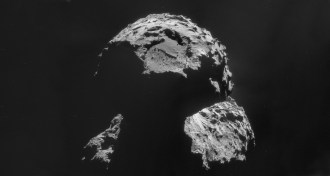 Astronomy
AstronomyRosetta’s countdown to comet landing has begun
Everything is on track for Rosetta mission scientists to attempt to set the Philae lander on the surface of comet 67P/Churyumov-Gerasimenko.
-
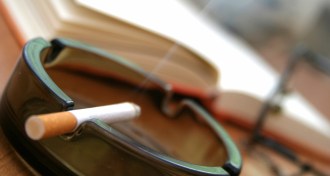 Environment
EnvironmentThirdhand smoke poses lingering danger
Harmful cigarette chemicals that linger on surfaces, known as thirdhand smoke, can go on to pollute the air and may harm people’s health.
By Beth Mole -
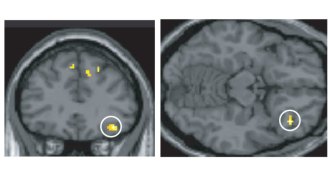 Neuroscience
NeuroscienceBrain regions linking odors to words pinpointed
Scientists have pinpointed two brain regions involved in linking odors to their names, with implications for why smells are hard to identify.
-
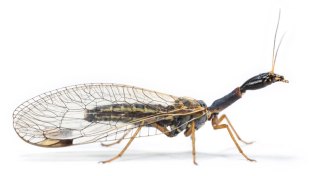 Life
LifeEpic worldwide effort explores all of insect history
A whopper of a genetic analysis fits all living orders of insects into one genealogical evolutionary tree.
By Susan Milius -
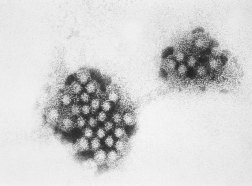 Life
LifeNorovirus grown in lab, with help from bacteria
Norovirus, famous for sickening cruise ship passengers, has finally been grown in human cells in a lab, offering scientists a chance to test new therapies.
By Meghan Rosen -
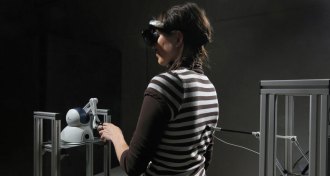 Psychology
PsychologyWith a tap on the back, researchers create ghostly sensation
Experimentally induced illusion probes supernatural experiences, hallucinations.
By Bruce Bower -
 Materials Science
Materials ScienceBatteries become safe to swallow with spongy covering
Quantum-inspired coating switches from a conductor to an insulator to prevent injury from swallowed batteries.
By Beth Mole -
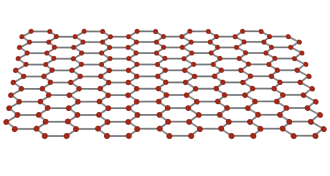 Materials Science
Materials Science‘Impermeable’ graphene yields to protons
Graphene sheets, impermeable to all atoms and molecules, can be penetrated by protons, new study shows.
By Andrew Grant -
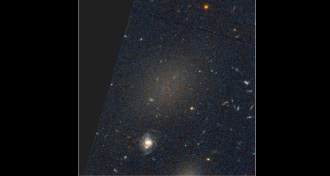 Astronomy
AstronomyNearly starless galaxies found in nearby cluster
Astronomers have found 47 galaxies with relatively few stars, something not predicted by any galaxy formation theories.
-
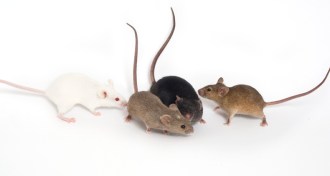 Genetics
GeneticsGenes influence Ebola’s impact
A study in a diverse strain of mice shows how the effect of an Ebola infection can depend on genes.
By Meghan Rosen